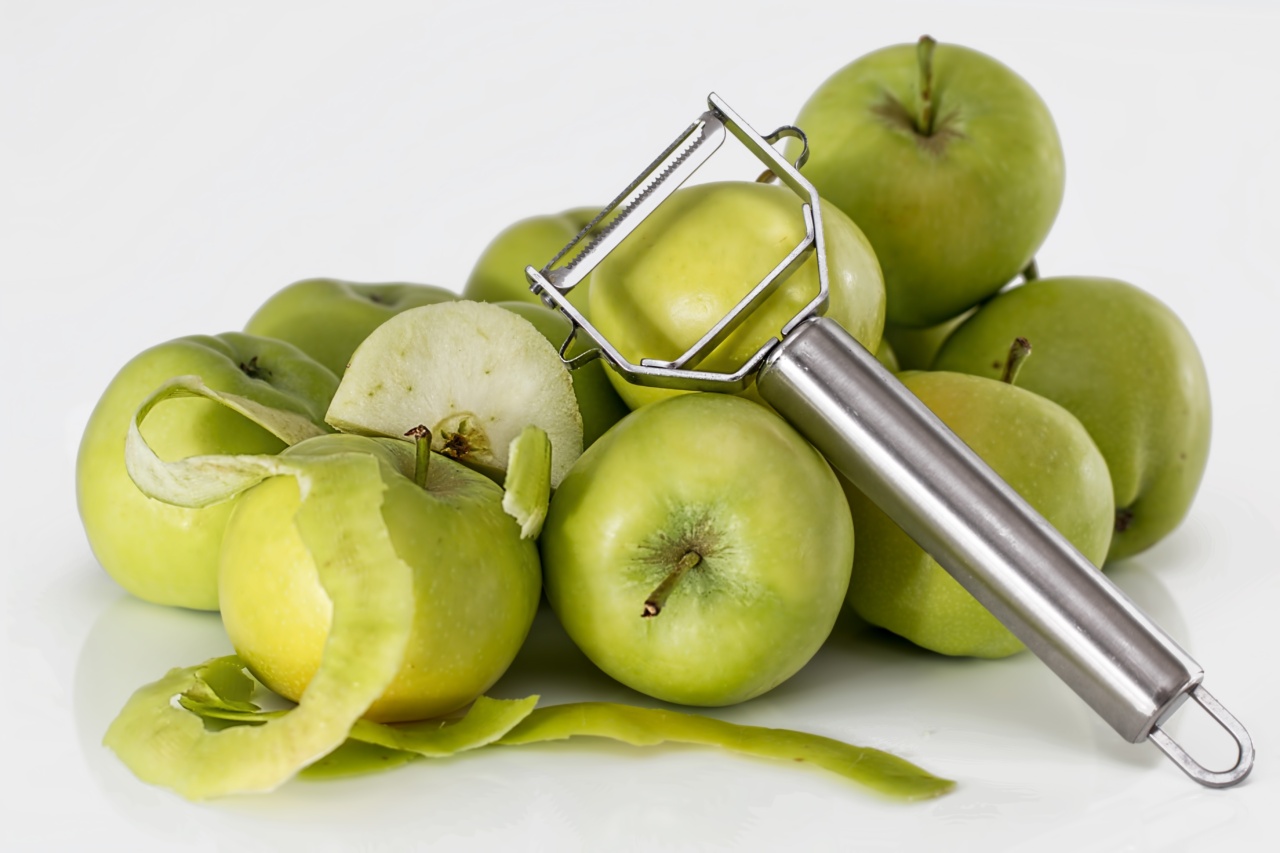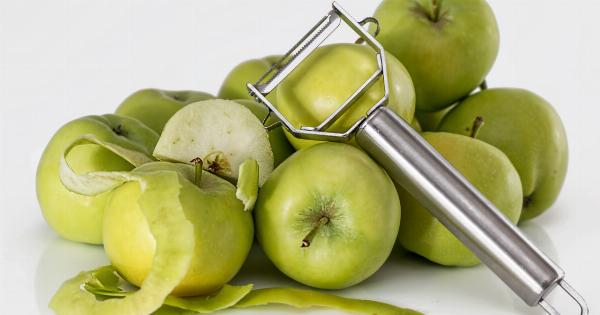Apples are one of the most popular fruits in the world. They are not only delicious but also packed with essential nutrients, such as fiber, vitamins C and K, and potassium. Apples can be enjoyed in a variety of ways.
You can eat them raw, cooked, or use them as an ingredient in recipes such as pies, cakes, and smoothies.
When it comes to preparing an apple, many people peel off its skin before eating it. While there are some valid reasons why you might want to do so, such as removing wax or pesticides, there are also several reasons why you should keep the peel on.
Here are some of the reasons why you shouldn’t peel your apples:.
1. The Peel Contains Antioxidants
The skin of an apple contains antioxidants that have been linked to several health benefits. Antioxidants are compounds that protect your cells from damage caused by molecules called free radicals.
Free radicals are produced by your body when it breaks down food, and they can also be found in the environment. If you have too many free radicals in your body, they can cause oxidative stress, which can lead to chronic diseases, such as heart disease, cancer, and diabetes.
The antioxidants found in apple skin include quercetin, catechin, and chlorogenic acid. Quercetin has been shown to have anti-inflammatory and antihistamine effects, which may help reduce the risk of allergies, asthma, and inflammatory diseases.
Catechin has been found to have anticancer properties, while chlorogenic acid has been linked to a reduced risk of heart disease and type 2 diabetes.
2. The Peel Contains Fiber
Another reason why you should keep the peel on your apple is that it contains fiber. Fiber is a type of carbohydrate that your body can’t digest. Instead, it passes through your digestive system mostly intact.
Fiber has several health benefits, including promoting digestive health, reducing cholesterol levels, and helping you feel full for longer.
A medium-sized apple with the skin on contains about 4.4 grams of fiber, while a medium-sized apple with the skin off contains only about 2.1 grams of fiber.
By eating the skin, you can increase your fiber intake and reap the health benefits associated with it.
3. The Peel Adds Texture and Flavor
Not only does the apple peel contain health benefits, but it also adds texture and flavor to the fruit. The skin provides a contrast in texture to the soft flesh of the apple, making it more enjoyable to eat.
The skin also adds some bitterness to the sweetness of the apple, giving it a more complex flavor profile.
If you’re used to peeling your apples, you might be surprised at how different they taste with the skin on. Eating an apple with the skin on might take some getting used to, but it’s worth it for the added flavor and texture.
4. The Peel Can Help Keep the Apple Fresh
The skin of an apple can also help keep it fresh for longer. When an apple is picked, it naturally produces a gas called ethylene, which causes the fruit to ripen.
If the skin is left on, it can help prevent the ethylene from escaping, keeping the apple fresher for longer. This is especially helpful if you like to buy your apples in bulk and want to keep them fresh for an extended period.
5. The Peel Is Easy to Eat
If you’re worried that the skin of an apple might be tough to eat, don’t be. Apple skin is relatively easy to eat, especially if you choose a variety of apple that has a thinner skin, such as Honeycrisp or Gala.
You can also try slicing the apple thinly or cutting it into smaller pieces to make it easier to eat.
If you find the texture of the apple skin unappealing, you can also try cooking the apple with the skin on. Baked apples, for example, are delicious and don’t require any peeling.
Conclusion
As you can see, there are several reasons why you shouldn’t peel your apples. The skin of the apple contains antioxidants, fiber, and adds texture and flavor to the fruit. It can also help keep the apple fresh for longer and is easy to eat.
So, the next time you reach for an apple, consider leaving the skin on and enjoy all the health benefits it has to offer.





























